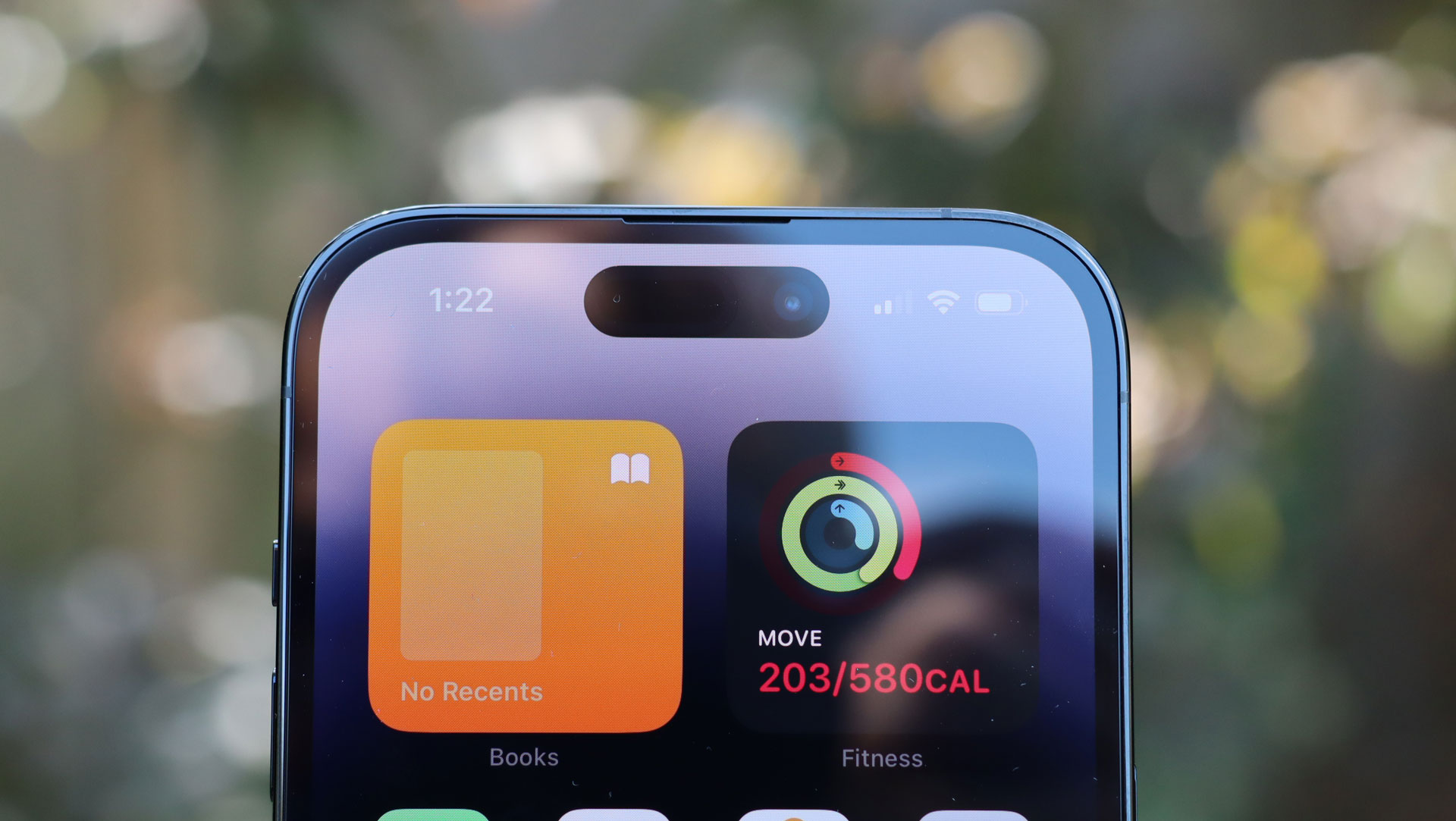iPhone 17 could get under-display Face ID, while iPhone 19 could regain Touch ID?
New features and old

It’s been rumored for years that Apple is working on moving its Face ID sensors under the iPhone display, so that they’re invisible, but it seems we could still be years away from this happening.
According to Ross Young – a reliable leaker – (via 9to5Mac) the company’s under-display Face ID plans are expected to be pushed back at least a year, to 2025 or later, due to sensor issues.
This would mean the iPhone 17 (or more likely the iPhone 17 Pro or Ultra) would be the first iPhones we’d see under-display Face ID on. And that sounds like a best-case scenario, since it could be pushed later than 2025.
Whenever it does happen, it’s likely to mean an all-screen iPhone with the front-facing camera components hidden under the screen too. But at a minimum, it would mean just a small punch-hole for the selfie camera would likely remain visible, closer in style to what you'd see on a lot of Android phones.
Under panel Face ID is now expected to be pushed at least a year to 2025 or later due to sensor issues.March 9, 2023
Interestingly though, in another report – this time from leaker yeux1122 writing on South Korean blog Naver – it’s claimed that Apple might subsequently bring back its Touch ID fingerprint sensors.
They say that two to three years after the implementation of under-display Face ID, Apple will add under-display Touch ID to iPhones. This is all a long, long way off if this report rings true, of course, with the feature not set to arrive before the iPhone 19 at the absolute earliest, assuming Young’s report is also accurate.
However, it’s not the first time we’ve heard of under-display Touch ID, which would presumably be a lot like the under-display fingerprint sensors found in most modern Android phones, from the high-end Samsung Galaxy S23 Ultra to the fairly low-end OnePlus Nord 2.
Get daily insight, inspiration and deals in your inbox
Sign up for breaking news, reviews, opinion, top tech deals, and more.
However, it sounds like this feature would be for more than just security, as the report adds that it might be able to do things like take pulse and blood oxygen readings. So it could help users collect health and fitness data, which has become a real focus for Apple since the launch of the Apple Watch.
While we’d take this with a pinch of salt for now, the addition of those sorts of features could be reason enough for Apple to bring Touch ID back.
Opinion: Touch ID should never have gone away
Face ID is great, most of the time, but it's not perfect. For example, until recently it wouldn’t work if you were wearing a mask or similar – and while it now does, you have to lessen the accuracy of Face ID in exchange for the added convenience.
Depending on how you’re holding your device (if you are even holding it) it can also be slightly annoying to position it at an angle where Face ID will work.
These are nit-picks, but they show that it remains an imperfect system, so having Touch ID as an option for situations where Face ID isn’t ideal would be appreciated.
We’re not suggesting Apple should switch back to purely Touch ID, but having both options would add an extra level of convenience. And if Apple really is planning on bringing Touch ID back it would almost certainly be as well as Face ID, rather than instead of.
With both systems in place, Apple would have a clear lead on the best Android phones when it comes to biometric security, whereas currently it largely comes down to personal preference towards face or fingerprint recognition.
James is a freelance phones, tablets and wearables writer and sub-editor at TechRadar. He has a love for everything ‘smart’, from watches to lights, and can often be found arguing with AI assistants or drowning in the latest apps. James also contributes to 3G.co.uk, 4G.co.uk and 5G.co.uk and has written for T3, Digital Camera World, Clarity Media and others, with work on the web, in print and on TV.